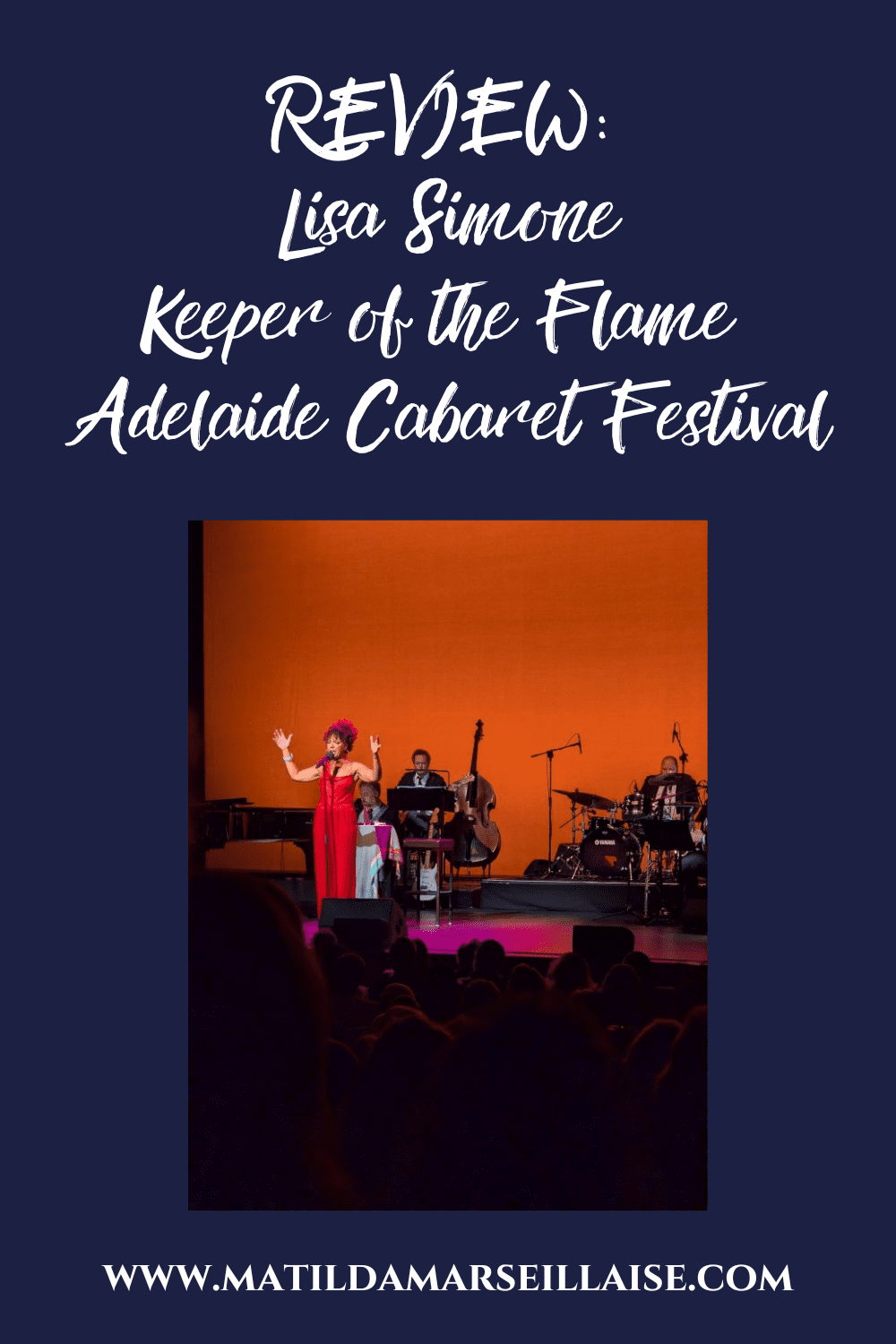On a cold Thursday night, we streamed into the warmth of the wonderfully refurbished Adelaide Festival Theatre for the third performance of the State Opera of South Australia’s 2018 production of “The Pearl Fishers”.
This time directed by Michael Gow, the story moves from its previous portrayals of Ceylon in ancient times to be set in colonial times in a foreign place, but not necessarily specifically Ceylon as it was originally written. The only clue that we could be in Sri Lanka is that the women have a bindi on their foreheads, but that doesn’t confine us to Sri Lanka as it could be any coastal place with Hindi women.
Instead of the 2 male leads being Sri Lankan as they have been in previous performances of this opera, here we see two Caucasian men in the roles, thus setting them as colonialists in a foreign land. Zurga, who in the first scene nominates himself, and is “elected” as, leader for the pearl fishing season (in the absence of any others to nominate themselves), is given life by the powerful baritone voice of Grant Doyle. Grant Doyle in the baritone role of Zurga provided depth and strength with the low tones to which his voice could sink. It seemed quite fitting that such a deep voiced character was elected to be the leader of the people for the fishing season.
His friend, Nadir, whom he has not seen for a very long time, is performed by the tenor, Andrew Goodwin. Goodwin flawlessly reaches high notes that even many female voices would struggle with. People sitting near us gossiped, at interval, that people in previous productions of The Pearl Fishers had “dropped out” of the role because of their inability to reach the vocal heights required of the tenor role.
The duet between Zurga and Nadir, one of the rare male duets in opera, Au fond du temple saint, was one of their most memorable numbers of the evening. They brought both a powerfulness and a softness at once as the two men sing about the woman they both fell for and because of whom they vowed to never let a woman come in between their friendship.
The real standout performer of the entire show (not to at all minimize the talents of Doyle and Goodwin), however was the incredible voice of Desiree Frahn in the role of Leila, whose sopranos mesmerized the audience. Leila, who is both the priestess brought to the coast to bless the pearl fishing season, and the same woman who led both Zurga and Nadir vow to never let come between their friendship (them both having been enchanted by her on previous an encounter). Leila arrives, as the mystery, unknown priestess, on the shore, dressed in a beautiful, bright yet elegant orange, sequined sari and her head and face veiled by a headscarf.
Her voice remained in line with her innocence while demonstrating the power she had to sing through the night to calm the demons of the ocean and to ward off storm spirits, the very reason for which her character Leila was brought to the shore.
Leila is brought to the shore under the control of Nourabad, the profiteer, with Pelham Andrews in that role. Andrews without needing to be overly dramatic in voice or action, is quite clearly portraying the bad guy in his scenes and his presence often feels menacing.
Leila is to remain veiled and pure (therefore no men, bad luck to Zurga and Nadir should they even wish to break that vow) and to sing through the night to calm the demons of the ocean and to ward off storm spirits. Those promises are thwarted however when Nadir recognises her singing voice and Leila in turn recognises him by voice and sight.
Act Two sees the two reunited only to be caught out and for Zurga to decide to sentence them to death at the following dawn. He is largely driven by his own jealousy and also by the local people (performed by the chorus) chanting that the pair must die.
Act Three sees Zurga regretting his decision, and a desperate Leila arriving at his door begging for him to spare Nadir’s life, and to take hers, alone and instead. Zurga almost reverses his decision but Leila admits that she is in love with Nadir. This then fuels his jealousy and he again condemns the two to death. On realising that her pleas were futile, Leila passes a necklace to the guard who brought her to Zurga, asking him to pass it on to her mother after her death. Zurga then realises that the necklace was the same one he had given to a woman who had saved him many years earlier and that he must now, in turn, save her. Zurga then, saving both Leila and his friend, sacrifices himself as he sets the village on fire to allow Leila and Nadir to flee and is alone on stage as the curtains close as he awaits the punishment of Nourabad and the outraged pearl fishers.
Robert Kemp’s set was compelling, with plays of light allowing the sea and sky in the back of the set to transform from sunny, to nighttime with stars, to a stormy evening and morning. The temple structures were prominent yet didn’t detract from the scenes taking place. The scene in Act Three which takes part inside Zurga’s quarters shows a picture typical of invaders, colonialists and hunters with approximately 10 animal heads proudly hanging on his walls.
Graham Abbott conducted the Adelaide Symphony Orchestra through Bizet’s score breathing new life into “The Pearl Fishers”. Having conducted the Opera Queensland production of “The Pearl Fishers” at short notice in place of another conductor last year, Abbott was not only already familiar with, but quite ready, for the task when the opportunity arose to work on Michael Gow’s State Theatre of South Australia production here in Adelaide.
The only criticism I have of this production is the surtitles as this is a performance in which the words are often repeated or sung at a pace slow enough that everything which is sung could be translated onto the surtitles. For example, in the scene in which Nadir tells Leila he will protect her for example, he also says repeatedly that he is there but instead we only see that he says he will protect her. The line is “Je suis là, je viens pour te protéger!” which is “I am here, I have come to protect you!” yet we only saw “I will protect you”. This is but a small critique and not one that detracts from the entirety of the wonderful production.
Michael Gow has breathed new life into this often overlooked (given the popularity of Bizet’s Carmen) opera setting it in colonial times. Graham Abbott flawlessly led the ASO in the enchanting score. Biased of course, it is also wonderful to see a French opera in the repertoire given the propensity for Italian language operas to take stage.
There remains just one performance of The Pearl Fishers at the Adelaide Festival Theatre, tonight at 7:30pm. Tickets are available here.
Matilda Marseillaise was a guest of the State Opera of South Australia





